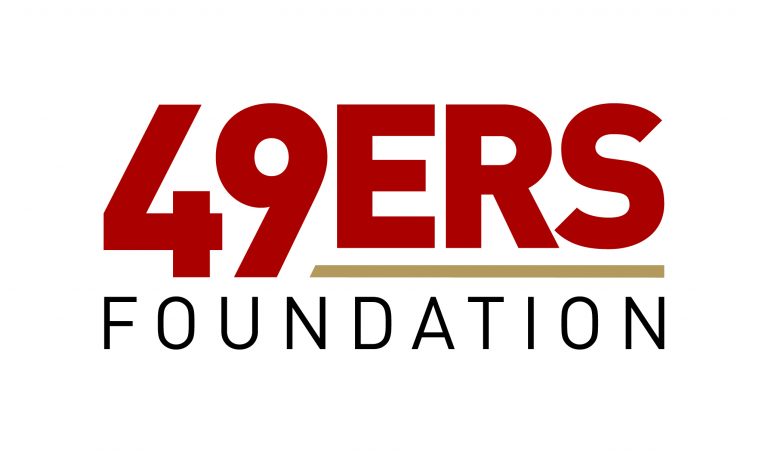
Website: https://bostoncasa.org/
Mission: Boston CASA’s mission is to ensure a safe and permanent home for court-involved children who have experienced abuse and neglect. We fulfill our mission by recruiting, training and supervising community volunteers who represent the best interests of children in and outside of the courtroom.
RELEVANCE
How does your organization strive toward the attributes associated with Relevance?
Child abuse and neglect occur every single day in all communities throughout Massachusetts. In fact, approximately 100,000 reports of alleged child abuse and neglect were filed with the Department of Children and Families (DCF) in 2016 – an average of 270 reports per day. Children involved in cases such as these are often removed from their families by DCF and placed in foster care. However, many of DCF’s social workers carry higher than the recommended caseload and as a result, often struggle to make their mandated monthly visits to check on the children. This lack of bandwidth and oversight can make it difficult to sufficiently meet the physical, social, and emotional needs of these children.
Boston CASA is the only organization that provides volunteer court appointed special advocates (“CASAs”) to children involved in the Suffolk and Middlesex Juvenile Courts due to abuse or neglect. We recruit, train, and supervise volunteers who are appointed by judges as Guardians ad Litem (GALs) to be the eyes and ears of the Court and watch over these highly vulnerable children. CASA volunteers have access to all pertinent case records and have legal standing which enables them to directly intervene in a case to ensure that their child’s unmet needs are addressed promptly. Volunteers also appear in court to provide updates and recommendations in order to ensure that sound decisions are being made in the best interests of children.
IMPACT
How does your organization strive toward the attributes associated with Impact?
Boston CASA’s volunteers are appointed to only one child or sibling group at a time; therefore they are able to provide the sustained personal attention that overwhelmed social workers and attorneys cannot. To measure our efficacy and impact, Boston CASA tracks the well-being of every child and youth we are appointed to in relationship to their education, physical and mental health, social well-being, and permanency. Unmet needs are regularly identified, action steps developed, and progress on accomplishing these tasks are assessed on an ongoing basis. Our success is measured by accomplishing the following for our children and youth: (1) achievement of permanency through (a) reunification with their birth parent(s), (b) placement with a legal guardian(s) or adoptive parent(s), (c) a permanent home prior to emancipating from the system, and/or (d) a supportive, permanent relationship with at least one adult; (2) increasing access to services including (a) educational resources, (b) mental health services, (c) physical health supports, (d) access to extracurricular activities; (3) youth served by Boston CASA’s Older Youth Advocacy Project (program for youth 16-22, many whom will “age out” of foster care) feeling more prepared for their transition to adulthood; and (4) additional supports (e.g. housing, education, and/or employment) being put into place for these youth.
Research has shown that children and youth with CASAs have better outcomes such as a greater self-esteem, better grades in school, and a more positive outlook for the future. They have access to a wider variety of services, are more likely to graduate high school, more likely to be adopted if they do not return to their birth families, and less likely to engage in delinquency behavior.
Boston CASA’s standard for children is what would we want for our own children? We are intent on every child receiving the highest quality of care and resources needed in order to have the best opportunity to thrive under very challenging circumstances.
SUSTAINABILITY
How does your organization strive toward the attributes associated with Sustainability?
Prior to becoming an autonomous nonprofit organization in 2012, Boston CASA was fully funded by the state and received minimal support from individual donors, foundations, and corporate groups. Since that time, the organization’s revenue has increased by 600% and become more diversified, with large increases in individual and foundation support. We host an annual gala each fall (our October, 2018 event grossed $185,000, our most successful event to date. Our first year grossed just over $50,000). The gala raises critical funds through the support of individual and corporate sponsors. We also achieved our most successful end-of-year campaign in 2017. Boston CASA is in the process of further developing our Board of Directors, with the goal of creating a more diverse, strategic, and fundraising-oriented group. Boston CASA hopes to maintain this support, as well as establish new relationships so that we can continue to secure new funding and sustain our anticipated growth. While Boston CASA’s revenue has increased 600%, the number of children we serve has also increased over 250% and we have quadrupled our volunteers. We have invested in our infrastructure, increased benefits, and created compensation packages that pay our employees a living and competitive wage as opposed to what we might be able to “get away with” (the standard used way too often in nonprofits).
Boston CASA values a $25 contribution as much as we do a $5,000 gift. Every donation is acknowledged, most often by our Executive Director regardless of amount. We believe that nonprofits should treat their investors and investments as seriously as a business owner treats their investors. No dollar should be taken for granted.
EXCELLENCE IN MANAGEMENT AND OPERATIONS
How does your organization strive toward the attributes associated with Excellence in Management and Operations?
Boston CASA is led by Charles Lerner, the organization’s first Executive Director. As a previous foster youth, adoptee, and child welfare leader, Charles has been part of the foster care system his entire life. He has over a decade of experience in management positions for organizations serving children and youth in foster care. Charles and Boston CASA were recognized with the Social Innovator Award from the Social Innovation Forum in 2017. Lisa Caissie, Boston CASA’s Assistant Director, also helps to lead the organization. An accomplished nonprofit management professional, Lisa has been with Boston CASA since 2013 and has spent much of her career designing and implementing volunteer programs. Boston CASA’s approximately 150 volunteers are the lifeline of the organization and its most critical resources. These volunteers have diverse professional and personal backgrounds but are all child advocates and some of our community’s most civic minded members. Boston CASA is intent on creating a truly representative CASA community including individuals from diverse cultural backgrounds. We believe in walking the walk and have just hired a staff member who will assist the organization in achieving greater representation. We believe that this representation benefits every member of our organization by addressing biases, expanding our worldview leading to greater empathy and sensitivity, and creating a safe and affirming place of belonging.
HOW DOES YOUR ORGANIZATION ENGAGE YOUNG PROFESSIONALS/EMERGING LEADERS?
Boston CASA has quadrupled its volunteers base over the past seven years (from 33 to over 140). Approximately 1/3 of these volunteers are ages 23-35. The role of a CASA volunteer is intensive and can be long-lasting (approximately 10-15 hours a month for 18 months, although some of our volunteers remain involved with their child/ren for many years). The level of commitment our volunteers take on requires a unique level of maturity and stability. This commitment begins very early on when volunteers participate in 40 hours of pre-service training (one of the most extensive volunteer training programs in the nonprofit sector).
Boston CASA is also developing future philanthropists and donors. Our young professionals receive a reduced price ticket for special events and these emerging leaders also host a “Spring Fling” for Boston CASA each spring in order to develop CASA’s network of young professionals and raise funds for the organization. These emerging leaders are who will take Boston CASA into the future and sustain the exciting growth the organization has experienced over the past seven years.





